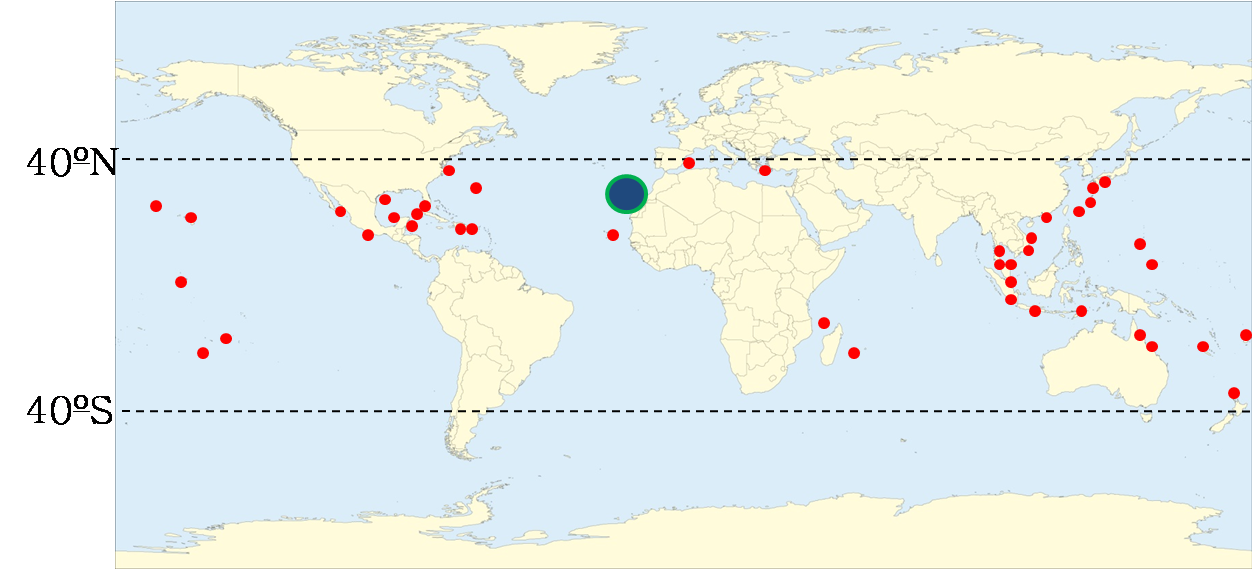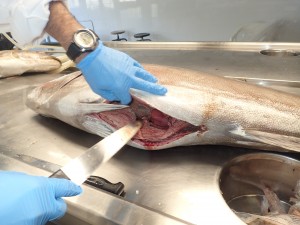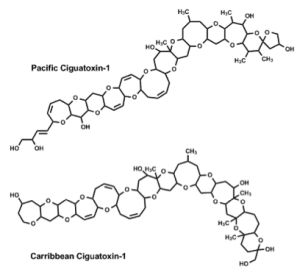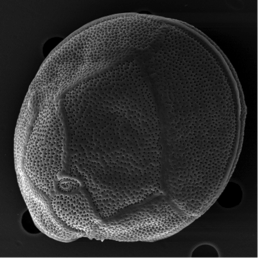What is ciguatera?
Ciguatera is the most widespread phycotoxin food-borne disease, endemic in tropical and subtropical areas. It affects every year 25000-500000 people. Ciguatera is caused by eating fish with toxins in their tissues (ciguatoxins produced by microalgae), and typical poisoning can occur at gastrointestinal, neurological and cardiovascular levels. Ciguatera has a low mortality rate but the health problems it causes can last for a long time, and can develop into a chronic illness. In tropical zones where the population is more dependent on fish consumption the incidence of ciguatera is significant and represents a serious problem for health authorities (regions of the Pacific, Caribbean and Indian, mainly).





